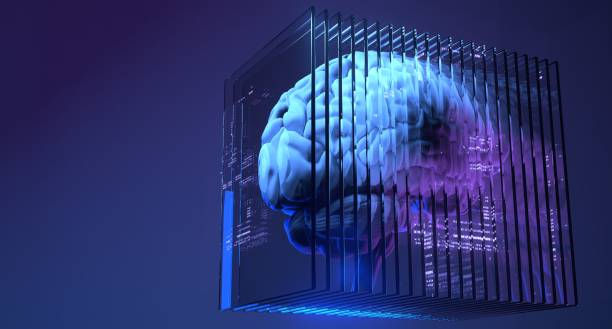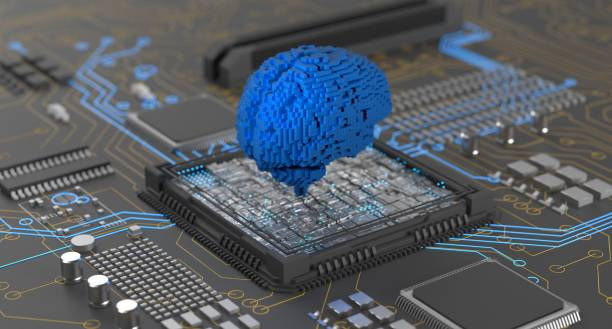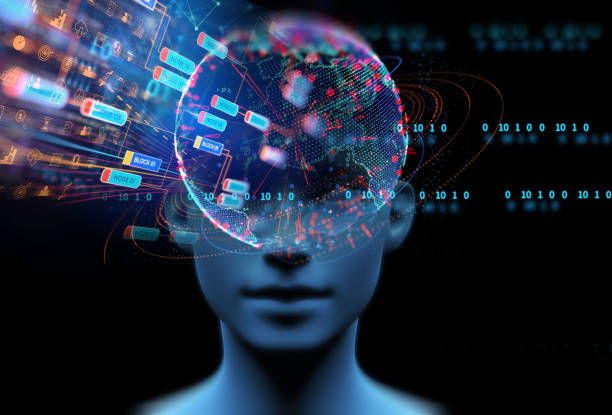"The Intersection of AI and Ethics: A Global Perspective":
- The Moolah Team
- Jul 7, 2023
- 10 min read
AI and machine learning are not just technical challenges, but also ethical challenges.
In this blog, we will provide a global perspective on the ethical issues related to AI, such as bias, privacy, and accountability, and highlight some of the cultural and legal differences that need to be taken into account when developing AI technologies.
I. Introduction: AI and Ethics - A Call for Global Collaboration
The development and implementation of artificial intelligence (AI) and machine learning technologies have the potential to revolutionize the world as we know it. From autonomous vehicles to smart homes, AI has the ability to streamline and enhance our daily lives in unprecedented ways. However, with great power comes great responsibility. As AI becomes increasingly sophisticated, so do the ethical challenges it presents.
AI and machine learning are not just technical challenges, but also ethical challenges. The decisions that AI systems make can have far-reaching consequences for individuals, organizations, and societies as a whole. The potential for AI systems to perpetuate and amplify biases, infringe on privacy rights, and evade accountability requires careful consideration of ethical implications.
The need for ethics in AI development is becoming increasingly urgent. In order to build and implement AI systems that benefit everyone, it is essential that ethical considerations are integrated into the development process. This requires a collaborative effort from researchers, developers, policymakers, and society at large.
In this blog post, we will provide a global perspective on the ethical issues related to AI. We will explore some of the key ethical issues in AI, such as bias, privacy, and accountability, and highlight some of the cultural and legal differences that need to be taken into account when developing AI technologies. We will also discuss strategies for addressing these issues and ensuring that AI is developed and implemented in an ethical and responsible manner.
It is important to note that AI is not a monolithic entity, but rather a collection of diverse technologies and applications. The ethical implications of AI will vary depending on the specific use case, and there is no one-size-fits-all solution to ethical challenges. However, by taking a global perspective and engaging in collaborative efforts, we can ensure that AI is developed and implemented in a way that benefits everyone.
As we move forward into a future where AI will play an increasingly prominent role in our lives, it is essential that we prioritize ethical considerations. By doing so, we can harness the potential of AI to improve lives and address some of the world's most pressing challenges. In the following sections, we will explore some of the key ethical issues related to AI and discuss strategies for addressing them.

II. Bias in AI: Recognizing and Addressing Ethical Challenges
One of the most pressing ethical issues related to AI is bias. Bias in AI refers to the tendency of AI systems to perpetuate and amplify existing societal biases and discrimination. This can have serious consequences, as AI systems are increasingly being used to make decisions that affect people's lives, from job applications to criminal sentencing.
Examples of bias in AI are numerous. For instance, facial recognition algorithms have been found to be less accurate in identifying people with darker skin tones. This has implications for law enforcement and border control, as well as for individuals whose identity may be falsely attributed to someone else. Similarly, language models trained on large datasets have been found to perpetuate gender and racial biases, which can have serious consequences for marginalized communities.
The causes of bias in AI are multifaceted. One major cause is the lack of diversity in the data used to train AI models. When AI models are trained on biased or incomplete data, they are likely to perpetuate and amplify those biases. Additionally, the algorithms used to train AI models can also contribute to bias, as they may prioritize certain features or attributes over others, leading to discriminatory outcomes.
Recognizing and addressing bias in AI is a complex task, but there are strategies that can be employed to reduce bias and ensure that AI is developed and used in an ethical and responsible manner. One strategy is to ensure that the data used to train AI models is diverse and representative of the population as a whole. This can be achieved through efforts to collect more diverse data and to ensure that data is collected in a fair and ethical manner.
Another strategy is to involve diverse stakeholders in the development and deployment of AI systems. By engaging with a range of perspectives and experiences, AI developers can identify and address biases that may be present in their systems. This can involve collaborating with communities that are directly affected by AI systems, as well as working with ethicists and other experts to develop ethical frameworks for AI development.
Ultimately, addressing bias in AI requires a commitment to ethical principles and a willingness to challenge assumptions and biases that may be present in our data and algorithms. By recognizing and addressing bias in AI, we can ensure that AI systems are developed and used in a way that is fair and equitable for everyone.
In the following sections, we will explore other key ethical issues related to AI, including privacy and accountability. By taking a global perspective and engaging in collaborative efforts, we can ensure that AI is developed and implemented in a way that benefits everyone.

III. Privacy in AI: Balancing Innovation with Individual Rights
Privacy is another key ethical issue related to AI. As AI systems become more integrated into our lives, there is a growing concern about the potential for these systems to infringe on our privacy and personal freedoms. AI systems can collect, process, and analyse vast amounts of data about individuals, from their online activity to their physical movements.
This has raised questions about who has access to this data, how it is being used, and whether individuals have the right to control and protect their personal information. In some cases, AI systems have been used to monitor and surveil individuals, raising concerns about the potential for abuse and violation of privacy.
At the same time, there is also recognition of the potential benefits of AI for privacy protection. For instance, AI systems can be used to detect and prevent cyber attacks and fraud, as well as to enhance encryption and security protocols. Additionally, AI can be used to develop tools and technologies that empower individuals to take control of their own privacy, such as privacy-preserving technologies and tools for data deletion and encryption.
To address privacy concerns related to AI, it is important to balance innovation with individual rights. This can be achieved through the development of robust privacy frameworks and regulations that ensure that AI systems are developed and used in a way that respects individual privacy and freedoms. This can involve efforts to limit the collection and use of personal data, to provide individuals with greater transparency and control over their data, and to ensure that AI systems are subject to appropriate oversight and accountability mechanisms.
Additionally, it is important to foster a culture of privacy and data protection, in which individuals are empowered to make informed decisions about their personal information and to demand greater transparency and accountability from organizations that collect and use their data. This can involve efforts to educate individuals about the risks and benefits of AI and to promote a greater understanding of data protection and privacy issues.
By balancing innovation with individual rights, we can ensure that AI systems are developed and used in a way that respects privacy and personal freedoms, while also unlocking the full potential of AI for the benefit of society as a whole. In the following section, we will explore the importance of accountability in AI, and the challenges associated with ensuring that AI systems are used in an ethical and responsible manner.

IV. Accountability in AI: The Challenges of Ensuring Ethical and Responsible Use
As AI systems become more sophisticated and integrated into our lives, there is a growing need to ensure that they are developed and used in an ethical and responsible manner. This requires a focus on accountability, which involves holding organizations and individuals responsible for the decisions and actions they take with respect to AI.
One of the key challenges associated with ensuring accountability in AI is the complexity of these systems. AI systems can be difficult to understand and interpret, particularly when they involve complex algorithms and decision-making processes. This can make it difficult to identify who is responsible for the decisions and actions taken by these systems, and to hold them accountable when things go wrong.
Another challenge is the lack of clear legal and regulatory frameworks governing the development and use of AI. This can create a regulatory gap, in which there are few clear rules or guidelines for organizations to follow when developing and deploying AI systems. This can make it difficult to hold organizations accountable for the decisions and actions taken by these systems, and to ensure that they are used in an ethical and responsible manner.
There is also a need to address issues related to bias and discrimination in AI. AI systems can be biased in a number of ways, reflecting the biases and assumptions of their developers and the data on which they are trained. This can result in unfair or discriminatory outcomes, particularly for marginalized or underrepresented groups.
To address these challenges, there is a need for greater transparency and accountability in the development and use of AI systems. This can involve efforts to increase the transparency of AI systems, including the development of tools and technologies that allow individuals to better understand how these systems work and the decisions they make.
Additionally, there is a need for greater oversight and regulation of the development and use of AI, including the development of clear legal and regulatory frameworks that govern the use of these systems. This can involve efforts to establish clear standards for the development and deployment of AI systems, as well as to establish mechanisms for oversight and enforcement of these standards.
Ultimately, ensuring accountability in AI requires a collaborative and multidisciplinary approach, involving stakeholders from across academia, industry, and government. This can involve efforts to promote greater collaboration and information-sharing among these stakeholders, as well as to promote greater public awareness and engagement on issues related to AI ethics and accountability.
By addressing these challenges and promoting greater accountability in AI, we can ensure that these systems are developed and used in a way that is ethical, responsible, and beneficial to society as a whole.

V. Cultural and Legal Differences in AI Ethics: A Global Perspective
AI is a global phenomenon, and as such, ethical considerations related to AI must take into account the diverse cultural and legal contexts in which these systems are developed and deployed. While there are many common ethical issues that apply across cultures and legal systems, there are also important differences that must be taken into account.
One key area of difference is in the values and norms that underpin different cultures. These values can shape perceptions of privacy, autonomy, and fairness, which are all important considerations in AI ethics. For example, some cultures may place a greater emphasis on privacy and data protection, while others may prioritize transparency and accountability.
Another area of difference is in the legal frameworks that govern AI development and deployment. Different legal systems have different approaches to issues such as liability, intellectual property, and human rights, which can impact the way in which AI systems are developed and deployed. For example, in some legal systems, liability for AI-related harm may be assigned to the developer, while in others, it may be assigned to the user.
In addition to these differences, there are also challenges associated with cross-border collaboration and the development of global standards for AI ethics. While there is growing recognition of the need for ethical standards in AI development and deployment, there are still significant differences in the ways in which these standards are conceptualized and applied.
To address these challenges, there is a need for greater cross-cultural dialogue and collaboration on AI ethics. This can involve efforts to identify and understand the values and norms that underpin different cultures, as well as to develop frameworks for ethical decision-making that are sensitive to these differences.
Additionally, there is a need for greater international collaboration on the development of AI ethical standards. This can involve efforts to establish common principles and guidelines for the development and deployment of AI systems, as well as to promote greater information-sharing and collaboration among researchers, policymakers, and industry stakeholders.
Ultimately, by taking into account the cultural and legal differences that exist in AI ethics, we can develop more robust and inclusive ethical frameworks that reflect the diverse perspectives and values of people around the world. This can help to ensure that AI is developed and deployed in a way that is beneficial to society as a whole, while also respecting the diverse cultural and legal contexts in which these systems operate.

VI. Conclusion: AI Ethics in a Global Context
In this blog post, we have explored the intersection of AI and ethics from a global perspective, highlighting some of the key ethical issues related to AI, such as bias, privacy, and accountability. We have also discussed the importance of taking into account the cultural and legal differences that exist in AI ethics, as well as the challenges associated with developing global standards for AI ethics.
As AI continues to evolve and become more integrated into our lives, it is increasingly important that we develop ethical frameworks that are capable of guiding its development and deployment in a responsible and beneficial manner. This requires us to consider not only the technical challenges associated with AI, but also the ethical challenges, which are complex and multifaceted.
One of the key challenges associated with AI ethics is the need to balance competing interests and values. For example, while AI can bring significant benefits in terms of efficiency and productivity, it can also raise important ethical concerns related to privacy, autonomy, and fairness. To address these concerns, it is essential that we develop ethical frameworks that are grounded in the values and norms of diverse cultures and legal systems.
Another challenge associated with AI ethics is the need for greater transparency and accountability in AI decision-making. As AI systems become more complex and autonomous, it becomes increasingly important that we are able to understand how these systems are making decisions, and that we are able to hold those responsible for AI-related harm to account.
To address these challenges, it is important that we continue to engage in cross-disciplinary dialogue and collaboration on AI ethics. This can involve efforts to develop ethical frameworks that are grounded in a broad range of perspectives and values, as well as to establish common principles and guidelines for the development and deployment of AI systems.
Ultimately, by developing ethical frameworks that are capable of guiding the development and deployment of AI in a responsible and beneficial manner, we can help to ensure that AI is developed and deployed in a way that serves the best interests of society as a whole. This requires us to be proactive in identifying and addressing ethical concerns related to AI, as well as to be open and transparent in our decision-making processes, and committed to working collaboratively to build a better future for all.
Thank you for reading this blog post on the intersection of AI and ethics from a global perspective. We hope that this post has provided you with a better understanding of the ethical challenges associated with AI, and the importance of developing ethical frameworks that are capable of guiding its development and deployment in a responsible and beneficial manner. If you enjoyed this post and want to stay up to date with the latest developments in AI ethics, be sure to subscribe to our newsletter. Thanks for your time, and we look forward to continuing the conversation on AI ethics in the future.
Best regards,
Moolah







Comments